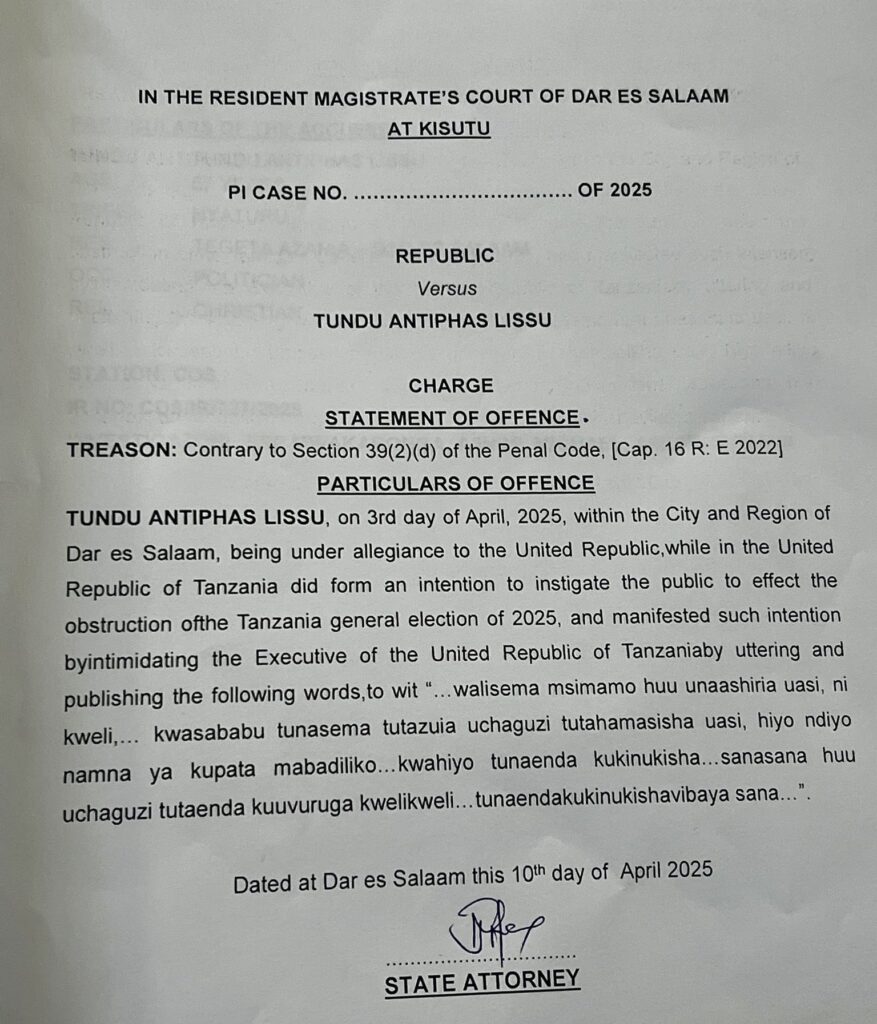On Thursday, a Tanzanian court charged opposition leader Tundu Lissu with treason after he told the public to delay elections that are planned for later this year.
Lissu, who leads the country’s largest opposition party CHADEMA and was also the runner-up in the 2020 presidential election, had been arrested a day earlier in the Ruvuma region after taking part in a demonstration.
The protest was part of a campaign by his party called “No reforms, no election,” which has been gaining attention in different parts of the country.

Lissu appeared in court in Dar es Salaam but was not allowed to enter a plea to the treason charge. Instead, he was only able to respond to another accusation of posting false information, to which he said he was not guilty.
This move by the court raised more questions about the legal process and the fairness of the charges against him.
Treason is a very serious crime and is often used by governments to silence strong political opponents. The decision not to allow Lissu to plead also adds to concerns about whether the courts are being used to target those who criticize the government.
This case is likely to draw more international focus on President Samia Suluhu Hassan’s record on human rights. When she took over the presidency in 2021 after the sudden death of John Magufuli, many people had hoped for a new era of political openness.
She received praise for relaxing strict rules on political gatherings and reducing censorship of the media.
But over time, that image has started to fade. Human rights groups have been raising concerns over recent incidents where critics of the government have been arrested, kidnapped, or even found dead under unclear circumstances.
While President Hassan has said that her government respects human rights and has even launched investigations into suspected kidnappings, critics say that more needs to be done.
These investigations have not led to major changes or accountability. In fact, the arrest of Tundu Lissu adds to growing fears that Tanzania may be returning to a period of political intimidation and silencing of dissent.
Lissu has remained a strong voice for reforms in Tanzania. His campaign argues that without meaningful changes to how elections are run and how political opponents are treated, there should be no election at all.
This position has attracted both support and criticism, but it highlights the deep frustrations many people feel about the current political environment.
The treason charge may be seen by some as an attempt to crush that movement and keep him out of the political picture ahead of the elections.
As the country moves closer to the polls, the international community and Tanzanian citizens will be watching closely to see how the government handles this situation and whether it truly respects democratic values.

